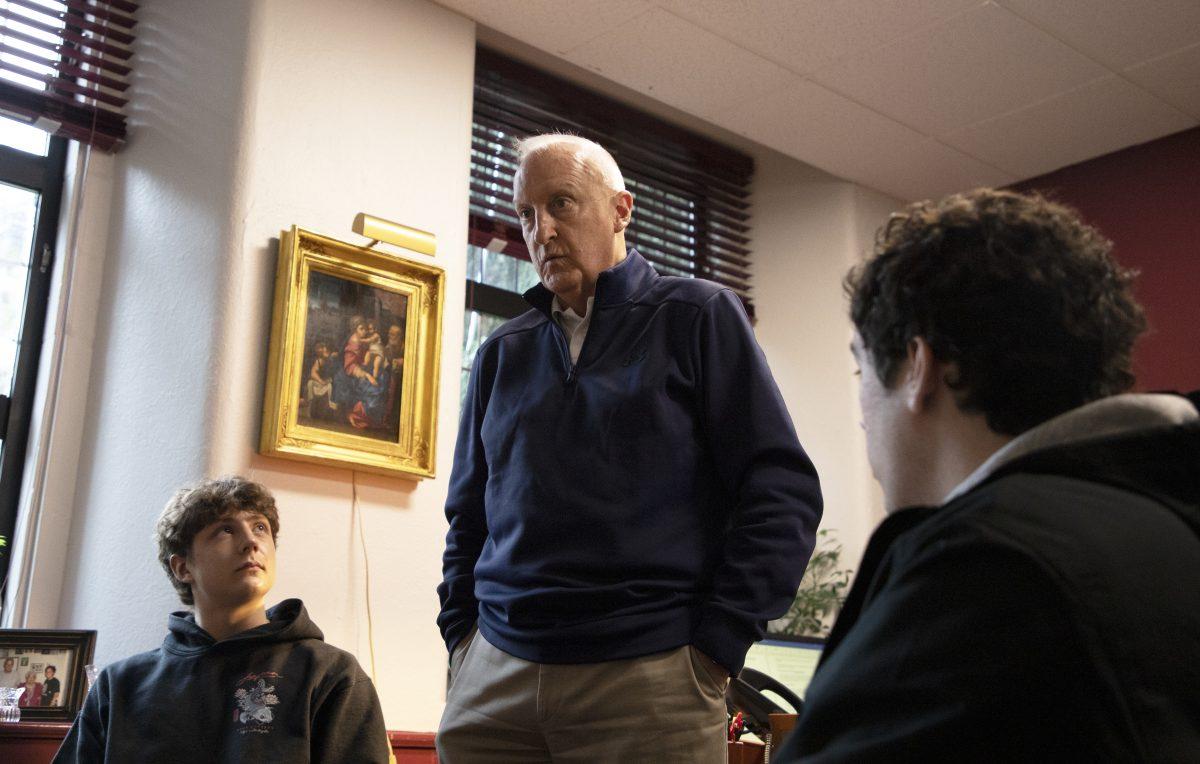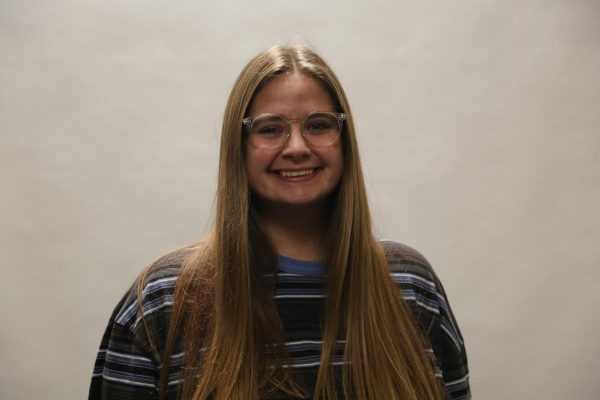Peter A. Clark ’75, S.J., Ph.D., is a theology professor and director of the Institute of Clinical Bioethics at St. Joe’s. The author of 150 articles in the field, he is a 24/7 on-call bioethicist consultant for 17 hospitals in Pennsylvania, Maryland and Delaware. Clark is also responsible for teaching 450 medical residents in the area how to make recommendations to patients and their families regarding their treatment plan.
Clark graduated from St. Joe’s with a bachelor’s degree in international relations and earned his Ph.D. in Christian ethics with a specialization in biomedical ethics from Loyola University of Chicago in 1997. He was dean of students at St. Joe’s from 1978-83, entered the Jesuit priesthood in 1983 and then joined the St. Joe’s faculty as a professor in 1997.
Some of Clark’s current projects include looking at the ethics of genetically modified pig kidneys in humans, filming a DNR/AND code to create a visual for patients, expanding the Health Promoter program that he started, examining the ethics of using crack pipe kits to help people using drugs avoid additional risks and analyzing the use of Adderall laced with fentanyl on college campuses.
The Hawk: What inspired you to enter the Jesuit priesthood?
Clark: It was really my relationship with the Jesuits when I was working here and as a student. Back in the ’70s, every dorm, mostly houses, had a Jesuit living in it, so we got to know the Jesuits very well. I lived with Joe Feeney, S.J., who was a professor of English. And then when I was dean of students, I was in charge of Residence Life. I was in charge of all the Jesuits that lived in all the dorms, so I got to know them very well. They really inspired me in many ways. That was the real impetus of why I decided to enter this society.
The Hawk: What drew you to medical bioethics?
Clark: It was like a puzzle. Somebody has a feeding tube. How do you determine if you take the feeding tube out? Am I starving them to death? Or am I allowing them to let natural pathology take its natural course of events? It was really intriguing, all these issues like organ transplant and things like that. They were issues that families were facing, my own family …
And there weren’t a lot of people in this field. The majority were Jesuits, which was interesting. The first bioethicists were Jesuits. So it was an interesting field to go into.
The Hawk: How have the decisions you’ve had to make regarding peoples’ treatment impacted you and your career?
Clark: Those decisions were very humbling for me, and they humble you to realize this isn’t a job. I mean, this is someone’s mom. When we’re on rounds with the residents, a resident will say “the cancer patient in 207,” I get furious. “The cancer patient in 207” is someone’s mom and she has a name and you will call her by her name. So they all know now when Clark’s on, make sure you have the name of the patient and who they are because it is someone’s mom and they need to be treated with dignity and respect. I think that’s important.
The Hawk: How urgent are a majority of the recommendations you are making?
Clark: What we teach the residents is, “Can we red-flag these cases before they get to the point where we’re at the 11th hour and have to make a decision?” So let’s talk to the family about options, palliative care, hospice, that type of thing. That’s the preference. Unfortunately, some of these people come in the late stage, and now we’re confronted with a decision that has to be made very quickly. So the residents will call me on that. “What do we do? How do we do it?” I can either go in and speak to the family, or I can talk to them on the phone and we make decisions like that. We prefer that we talk in a scenario where we’re not under a time constraint. But are there times we’re under time constraints? Absolutely. And they’re the toughest ones.
The Hawk: Many people believe that you have to choose between science and God. How have you balanced being someone with a science and medical background, and a priest at a Jesuit university?
Clark: I’m fortunate. I’ve been trained in both philosophy and theology. When I’m at a secular hospital, like Jefferson, I’m a philosopher, but when I’m in a Catholic hospital, I’m a theologian. Ethics is grounded theologically and philosophically. … The Big Bang Theory is based on the laws of gravitation and gravity. Well, where did they come from? Science to this day is pretty much faith-based. So as much as God is faith based, so is science. The intersection is, we’re pretty much at the same point, and I think we do the best we can.
The Hawk: What are some of the biggest obstacles you have faced in your career?
Clark: I think the toughest things we’ve had to deal with are the undocumented. They’re not covered by any medical care and the government doesn’t really care about that. That really started about 10 years ago at the hospitals here in Philly. We have 50,000 undocumented Africans and we have about 60,000 undocumented Hispanics here, and I’m not even counting Asians and others, just in Philadelphia.
So they were coming into the ER [Emergency Room]. Let’s say their kidneys were failing, late stage renal disease. EMTALA, the federal law, says anybody who comes into the ER we have to stabilize, not treat but stabilize. But to stabilize somebody with late stage renal, I have to put them on dialysis. But if I put you on dialysis, you need it every three days. Who’s paying? So the nuns, because Catholic hospitals are under common good, wouldn’t turn anyone away. Finally, I said, “No, [if] you get 15 more of these, you’re going to put the hospital in financial jeopardy.” So we created what we have now here in the Institute [of Clinical Bioethics], the Health Promoter programs.
The Hawk: Tell us more about the Health Promoter programs.
Clark: We have one with Hispanics and one with Africans. We go to a clinic church at Saint Cyprian, 63rd and Cobbs Creek, and we work out of the consulates of Mexico and Guatemala here. Our students provide medical care for these individuals, and we do it monthly. We have height and weight, glucose, cholesterol, blood pressure, eye care, a full dental clinic, full prenatal vitamins with baby boxes for the pregnant moms. We have our medical residents come and they take care of them. So we’re now going to open up a third [program] with undocumented Asians in Chinatown, but this is done by the St. Joe’s kids. Our pre-med kids are doing this in conjunction with the Rowan Medical School, PCOM and with our medical residents at Mercy [Fitzgerald].
The Hawk: How do these programs connect to the Jesuit mission at St. Joe’s?
Clark: The Jesuits talk a lot about men and women for others, you know, seeing God in all things. It’s good talk, but I’m not sure we always see the action. Our kids are putting this into action. They’re treating these undocumented individuals with dignity and respect. They give up their Saturdays and Sundays to do this. I mean, that was the biggest obstacle we were facing in the medical professions. But our students really stepped up. They run the programs. It’s our undergrad pre-meds, pre-dental, PAs, nursing, they’re running the program. To me, that’s been our greatest success.















































